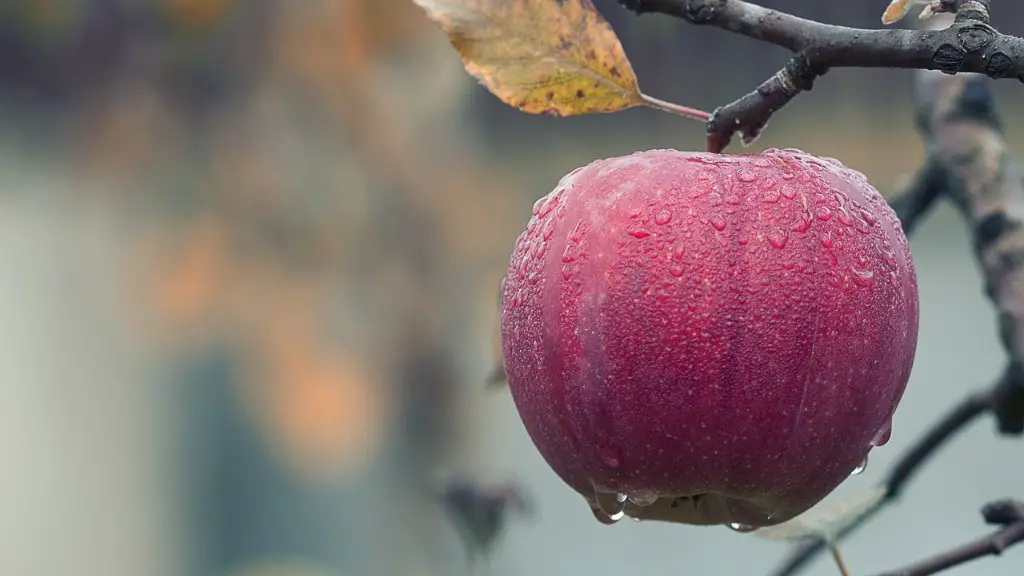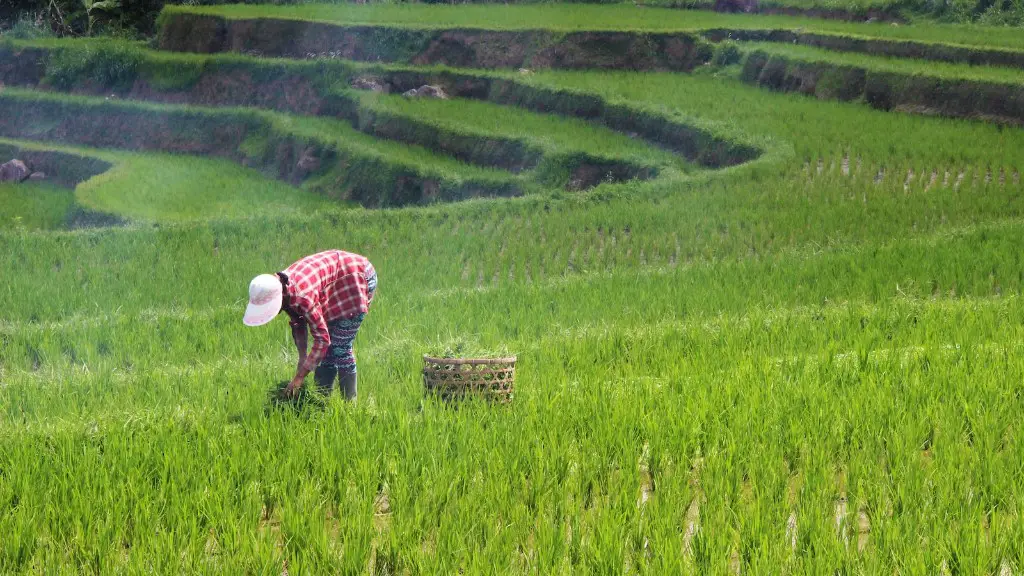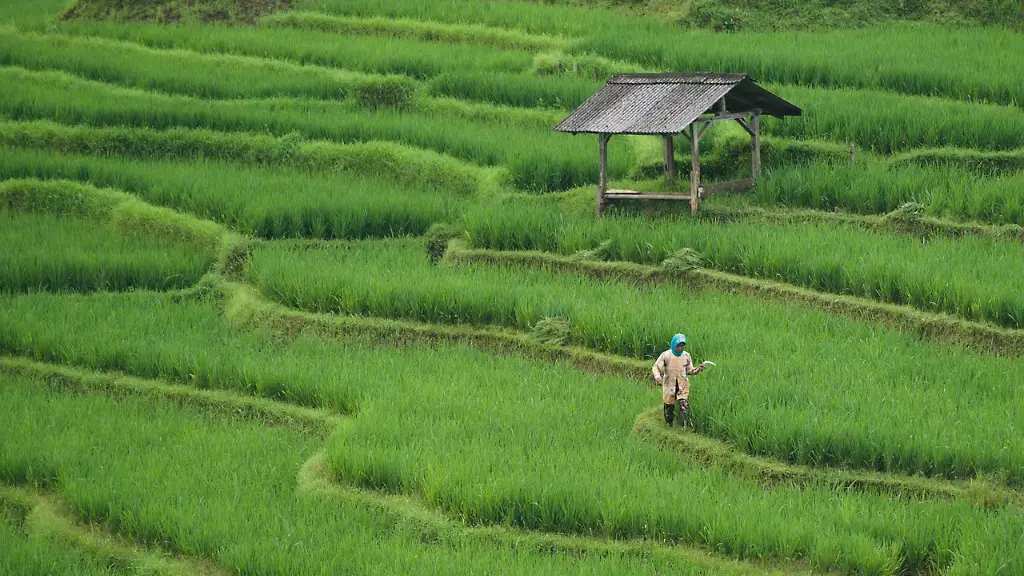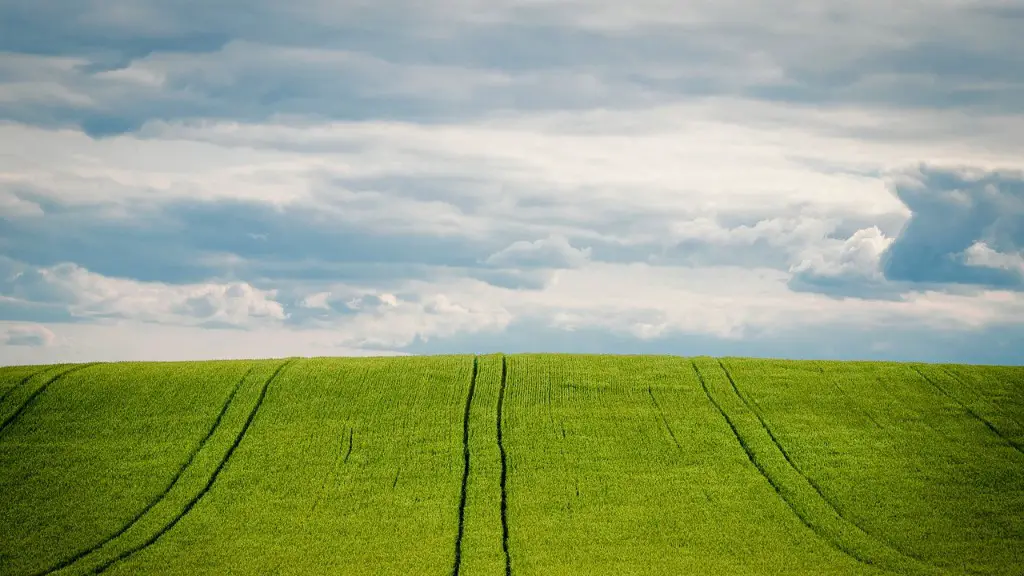Farming and agriculture are not only vital for food production, but also for maintaining healthy ecosystems. Agriculture helps the environment by promoting growth and regulating populations of plants and animals. Farmers also help to conserve resources, such as water and soil, and can play a role in reversing climate change.
Agriculture helps the environment by providing us with food, clean water, and jobs. It also helps to keep the air clean and the soil healthy.
What are positive impacts of agriculture?
Agriculture has a profound impact on society. It supports livelihoods through food production, provides habitat and jobs, and contributes to strong economies through trade. Agriculture also provides raw materials for a variety of food and non-food products.
While large-scale, conventional farming can yield high production levels, it also has negative impacts on the environment. This type of farming relies heavily on fossil fuels, pesticides, antibiotics, and synthetic fertilizers, which can contribute to climate change, pollution, and soil depletion.
How are farmers helping the environment
There are a number of practices that farmers can use to help protect and conserve the natural resources on their farms. These practices include no-till farming, installing fences around streams, planting cover crops, collecting water runoff, and integrating crop and pasture rotations. By using these practices, farmers can help reduce soil erosion, improve water quality, and promote healthy plant growth.
Agriculture is the process of producing food, feed, fiber and other desired products by the cultivation of certain plants and the raising of domesticated animals.
The main reasons why agriculture is important are as follows:
1. It is the main source of raw materials: Agriculture is the main source of raw materials for many industries such as textile, paper, food, pharmaceuticals, etc.
2. It is important to international trade: Agriculture is one of the most important sectors in international trade.
3. It plays a big role in a nation’s revenue: Agriculture is a major contributor to a nation’s GDP and tax revenue.
4. It provides employment: Agriculture provides employment for a large number of people, both in rural and urban areas.
5. It is crucial to a country’s development: Agriculture is a key sector for a country’s economic development.
6. It can help heal the environment: Agriculture can help to heal the environment by sequestering carbon, restoring ecosystems, and producing green energy.
7. It goes hand-in-hand with war: Agriculture is often a key sector in times of war, as it is essential for supplying food and other resources to the military and
What are 3 importance of agriculture?
Agriculture creates the enabling environment by the increase in biodiversity. This will lead to healthier soil, less erosion, better water conservation, and healthier pollinators. These benefits are essential to the health of our ecosystems and the planet.
Agriculture is the main source of raw materials for many industries, such as cotton and jute fabric, sugar, tobacco, edible and non-edible oils. Many other industries, such as the processing of fruits and vegetables and rice husking, also get their raw material mainly from agriculture.
What are the 3 benefits of green agriculture?
Sustainable agriculture has many advantages that are beneficial to both the environment and the farmers. One advantage is the protection of the environment. Sustainable agriculture practices can help reduce erosion and degradation of natural resources, improve air and water quality, and increase biodiversity. In addition, sustainable agriculture can help reduce carbon emissions, which are a major contributor to climate change. Another advantage of sustainable agriculture is that it can help farmers improve their economic viability. Sustainable agriculture practices can help farmers conserve resources, increase yields, and reduce production costs. This can make sustainable agriculture more profitable for farmers and help them better withstand market fluctuations.
Agriculture allowed early humans to settle down in one place and develop civilizations. It also allowed for the domestication of plants and animals, which led to a more reliable food supply. However, agriculture can also lead to conflicts over access to the food supply, and bad weather can damage crops.
What is the importance of agriculture
farmers are the backbone of the agriculture industry and play a vital role in ensuring food security and supporting economic growth and development. Without them, the world would be a very different place.
Agricultural growth is essential for poverty alleviation as it provides opportunities for the very poorest to improve their lives through increased employment and higher wages. While other sectors may also provide these opportunities, agriculture is often the most accessible and viable option for the poorest and most vulnerable people. With increased agricultural growth, the number of people living in poverty is likely to decrease, providing a wide range of benefits for both individuals and society as a whole.
What is the most important thing for agriculture?
It is well known that the use of modern machinery in agricultural lands causes more and high-quality production of crops. So, the provision of raw materials to the industries increases. This, in turn, provides more employment opportunities and also helps in the development of the economy.
From the above production statistics, we can see that corn is the most produced crop globally, followed by wheat and rice. Cow milk is the top agricultural product in 37 countries, while wheat is the top agricultural product in 14 countries. These production stats show that corn, wheat and rice are the top three crops in the world, and that cow milk is also an important agricultural product.
What are 5 benefits of sustainable farming
There are many reasons to support sustainable agriculture. It can help to reduce costs, prevent pollution, save energy, and prevent soil erosion. It is also animal-friendly and promotes biodiversity. Lastly, it improves food production with less waste and public health.
There are many ways to be an environmentally friendly farm. One way is to reduce soil tillage which helps to preserve the soil structure and helps the water to be absorbed better. Another way to be environmentally friendly is to rotate crops so that you are not growing the same crops in the same area all the time. This allows the soil to recover and stay healthy. Additionally, you can use low-pressure irrigation which uses less water and is therefore more environmentally friendly. Another way to be environmentally friendly is to plant cover crops which help to keep the soil in place and prevent erosion. Additionally, you can dispose of outdated pesticides instead of just throwing them away. Finally, you can change your lightbulbs to more energy efficient ones and recycle plastics.
What are the impacts of agriculture to the society?
The result of agriculture globally is that it often results in land degradation, which can lead to soil erosion and salinization. In addition, agriculture is also a major contributor to greenhouse gas emissions.
Agriculture can have both positive and negative impacts on the environment. On the positive side, agriculture can help to trap greenhouse gases within crops and soils, or mitigate flood risks through the adoption of certain farming practices. On the negative side, agriculture can contribute to pollution and degradation of soil, water, and air.
What are 2 advantages of traditional agriculture
Traditional farming methods are important for several reasons. They help to protect natural resources, maintain biodiversity, and enhance food security. They also provide cultural and ecological services to human beings. Traditional farming methods have helped in countless ways to sustain human life and civilizations.
In order to address the triple challenge of feeding a growing population, providing a livelihood for farmers, and protecting the environment, we must set the table for sustainable progress. This means that we must take a holistic approach to tackling these challenges, and that we must do so together. Only by working together can we hope to make progress on all three fronts.
Warp Up
How does agriculture help the environment?
-By growing plants and trees, agriculture helps to combat climate change by absorbing carbon dioxide from the atmosphere.
– Agriculture also helps to preserve our natural resources by preventing soil erosion and providing a renewable source of food and other products.
-In addition, agriculture can provide habitat for wildlife, help to purify water, and improve air quality.
Agriculture is a vital part of the environment and helps to keep it healthy. By planting trees and other plants, farmers help to prevent soil erosion and keep the land productive. They also help to clean the air and water by using sustainable farming practices.





